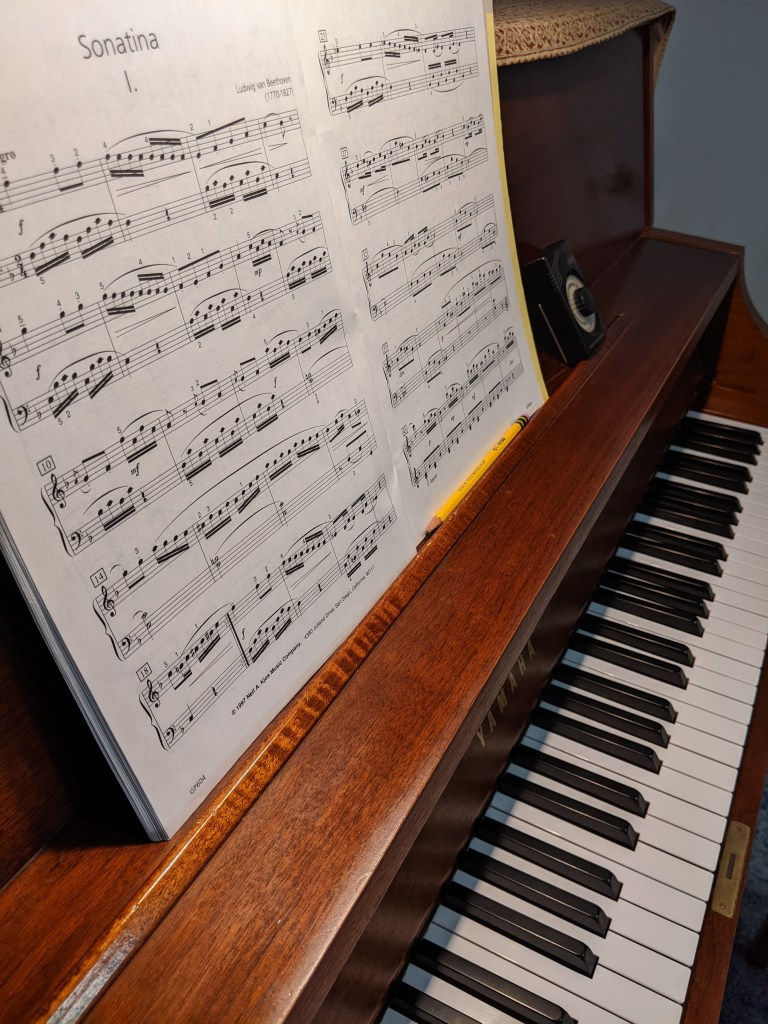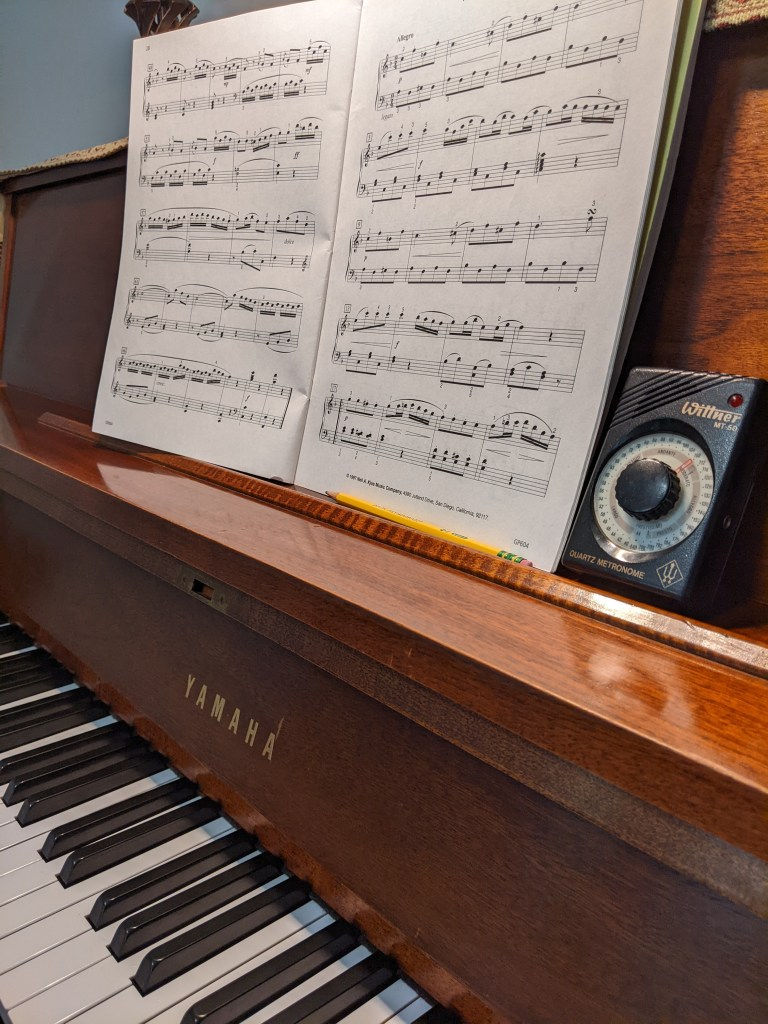Embracing Mistakes
- Catherine Sipher

- Mar 28, 2023
- 3 min read
Updated: Apr 14, 2023
Remaining tied to the emotions of our past mistakes, prevents us from pursuing the future with excellence. Learn how to embrace your mistakes with curiosity instead of judgment and apology through this musical example.
Mistakes are expected.
“I’m sorry.”
During a recent lesson, a student repeatedly used this phrase as they sight-read a new piece of music.
“There’s nothing to be sorry for,” I replied. “You are learning! Mistakes are expected.”
What a great motto for all of life!
What is a mistake?
Before going on, I think it will be helpful to define a mistake. For the purposes of this discussion, I am referring to an unintentional deviation from accuracy in the context of learning a new skill.
Our mistakes give us the opportunity to get curious about what happened, why it happened, and what we can change to create a different outcome.
The good news? We will always be making mistakes! They are here to stay, so we might as well get used to them!
Why? Because in our constant attempt to adapt to the ever-changing landscape of our lives, we will forever be learning new things and new ways of being. What is learning, if not the act of gathering data, assimilating it, making a few mistakes, learning from those mistakes, and then making changes? It’s like a life-sized science experiment!
Why, then, are we surprised to find ourselves making mistakes? More importantly, why do we apologize for these mistakes as if errors made while learning a new skill impact our morality?
I have my theories, but that is for another post.
For now, here’s one thing I’ve learned recently about mistakes: When I remain tied to the emotions of my past mistakes, I am unable to pursue my future success with excellence.

How do I embrace my musical mistakes?
Accept that mistakes are a part of life. They aren’t good or bad, they just are. Releasing judgment over the presence of these mistakes removes morality from the discussion. (Ex. I am not a "bad musician" or a "bad person" because of these musical errors.) Detaching from the emotion of mistake-making frees us to get curious and try again.
Stop apologizing for your mistakes. Apologies heal relationships in the presence of wrongdoing. No relationships are harmed in the misplaying of a note! Instead, simply notice the mistakes. Label them as such and move on.
Reframe your words when talking about your mistakes. Instead of apologizing, try saying, “Oops, I made a mistake.” “I forgot.” “Can you help me with…” or “I’ll try again.” "I wonder what happened."
Embrace your mistakes with curiosity. Ask yourself questions such as, "What can I learn from my mistakes? What does this mistake show me about myself that I need to learn, relearn, train, or cultivate?
Learning to play an instrument takes years of dedicated study. We will only master the playing of our chosen instrument if we have patience with ourselves and the learning process.
Mistakes will be made every day. That’s why we practice! Practicing is the art of learning, observing, and problem-solving by noticing and correcting our mistakes. That sounds a bit like the rest of life, doesn’t it?
The next time you make a mistake (musical or otherwise), before saying “I’m sorry,” pause and give the mistake permission to breathe and to talk to you. You’ll never know what insights your mistakes hold until you fully listen.

Food For Thought
How often do you apologize for making mistakes while learning a new skill?
Envision what it would feel like to live without judgment toward yourselves while learning to master that skill. Then try it out!
When learning a new skill, like playing an instrument, begin to accept and embrace your mistakes through the lens of non-judgment and curiosity. Allow the insights gained from your mistakes to propel you into higher levels of excellence and mastery over the subject.
Could you use personalized coaching on how to become a better musician by embracing your mistakes?
Is there a student/child in your life that could use encouragement from a music teacher who normalizes mistake-making and curiosity?
I love sharing simple and effective practice tips and mindset hacks with students of all ages and abilities through remote piano lessons. With no geographic boundaries, at Blossom Piano Studio, I can show you how to make the most of those musical mistakes. Book a Call today!
To have these "Insights From The Piano Bench" essays land directly in your inbox, subscribe to my monthly blog digest newsletter. Let's explore what music can teach us about life together.




Comments